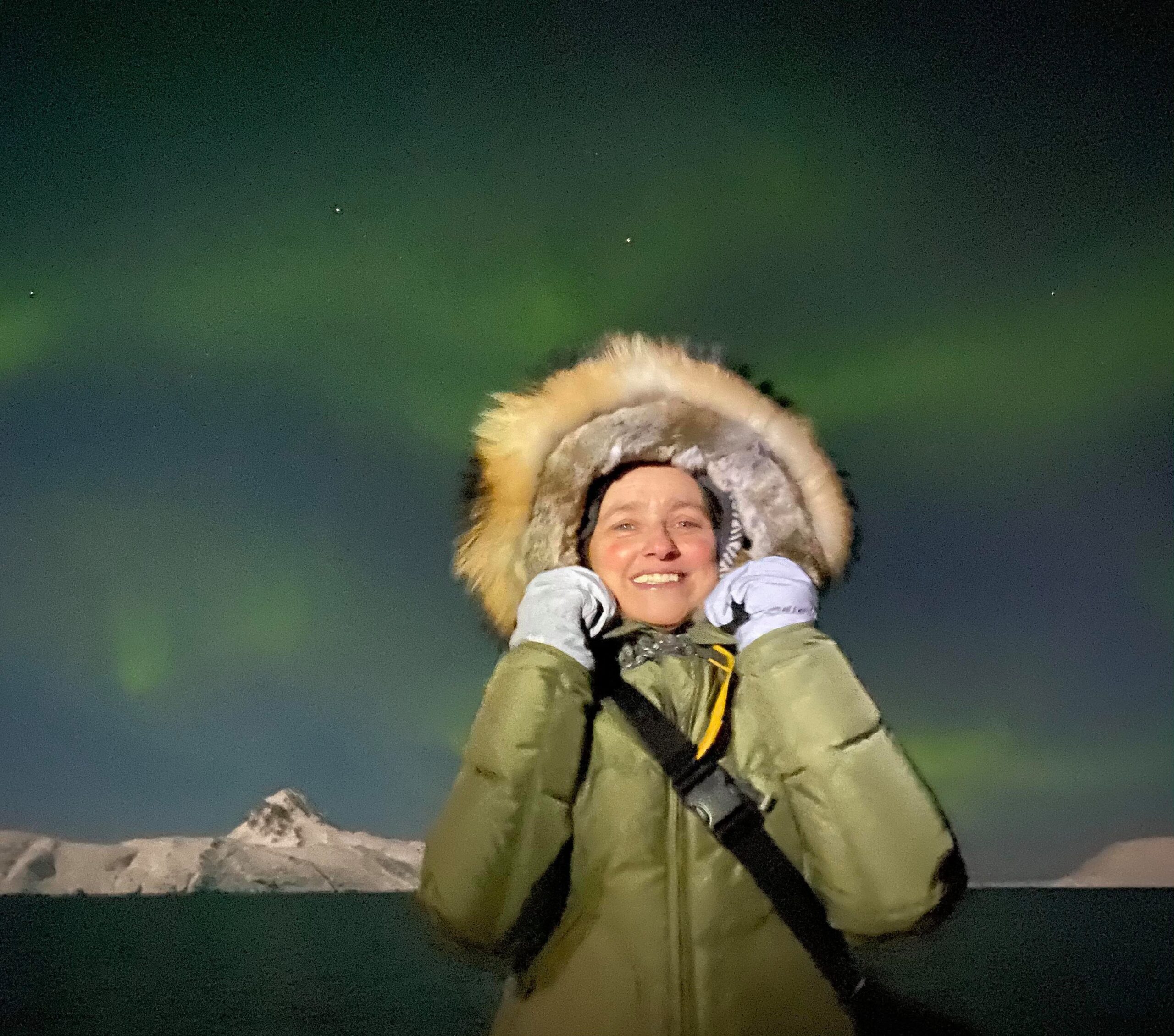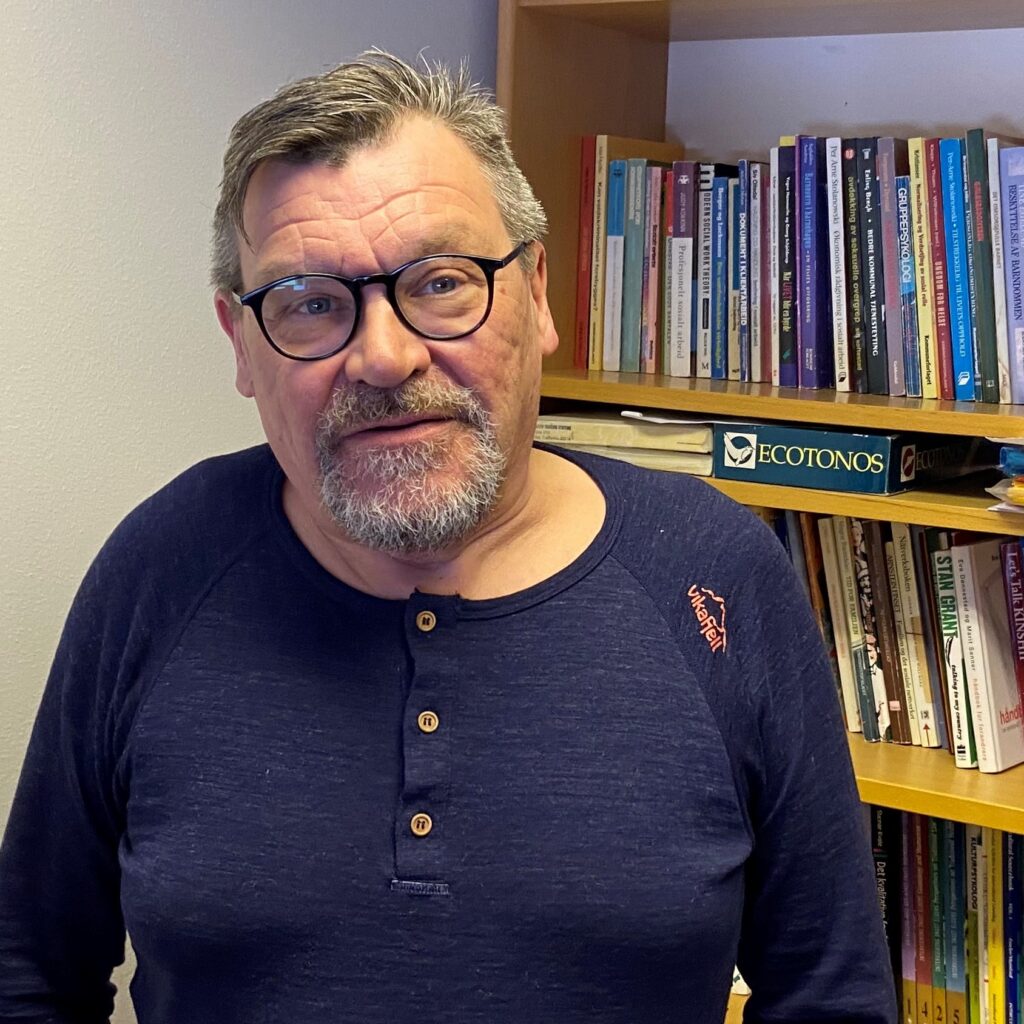Stories
"The combination of being in nature and being with other people is powerful. I work with young people and physical activities. In nature, it's about taking responsibility for each other. When I go on trips with young people, for example on survival trips in the fjord by the ice sheet here in Greenland, we are all on equal terms. I see nature as a school. A school that both the young people and I can learn a lot from."
Jan-Erik Pedersen
fitness group ”Go-away-cancer – life is a present”, Nuuk


"Today, we often think about how people should behave in nature and how we could avoid using up resources. The Sami people thought about this a long time ago. The Sami have defined social norms that ensure the well-being of nature. This became a kind of nature management, which was rooted in the people, because otherwise it will not be respected and used. To achieve this, the Sami used mythology. People could tell and share the stories. One could think about them with one's own background.
I always say this at the beginning of my lectures when I teach about Sami culture. Even if you won't be working in a Sami area, these are important things to think about."
Frida Maria
PhD candidate nature guiding and sustainable tourism, Tromsø and Alta
"In Greenland, you feel small. This land is so mighty, the mountains, the sea. You can't even go to the next town. It's a journey. Then you're just small. And because you're so small, you still get a lot of energy from this big country. More power than you would get in Denmark. It is not small in the way that you feel inconspicuous or pressured. It's really small in a good way. I simply have more physical energy here. I'm physically less tired."
Helle Rabøl Hansen
researcher, Copenhagen/Nuuk


"I usually tell my students, 'Views give insight'. They are allowed to think about it. For me, view is the ability to detect changes in nature. Whether you look into the bonfire or beyond a lake, or at the sky and clouds - for me the view is the ability to observe these changes. We are in an area here in Finmark where you can observe, but also take part in the changes. It's the midnight sun and the Northern lights, everything's changing. I think that in the Sami culture we are more concerned with the changes than we are in the Western culture. Changes are normal. But in social work, society is much more concerned with the lasting than the changes. I think that's a challenge."
Jan-Erik Henriksen
Prof. social work and indigenous knowledge, Finmark
"It's actually not good practice to look at a reindeer and think about slaughtering it. Because then you don't see the reindeer as a subject. There is a Sami philosopher, Niels Oskar, who has written about it. It is not good tone to calculate how many kilos a reindeer has, or how much you can get for it. That's not good. For as long as the animal is alive, it is a subject, and you must relate to it as a subject. This is the Sami way of thinking, which tells something about the relationship with animals. Or, for example, it would be completely unacceptable in the Sami tradition to first catch a salmon and then release it again. You don't do that. You don't play with salmon."
Asta Mitkijá Balto
educator and researcher, Alta

Sponsors
The project Nordic Nature Narratives was supportet by:



